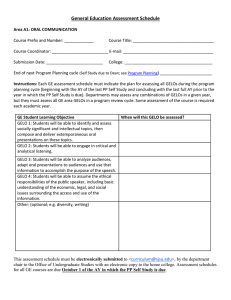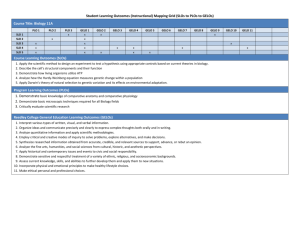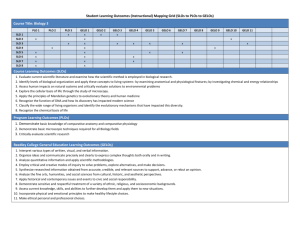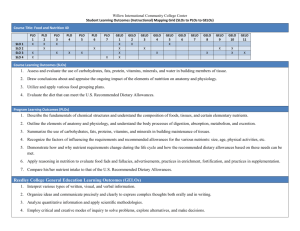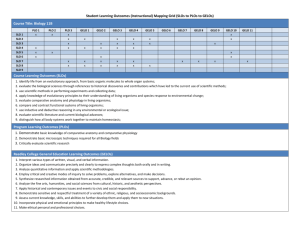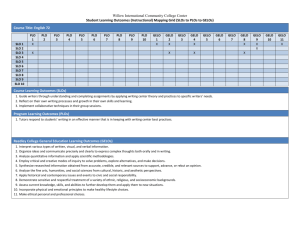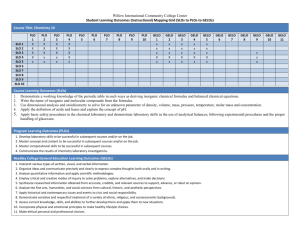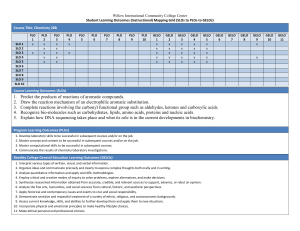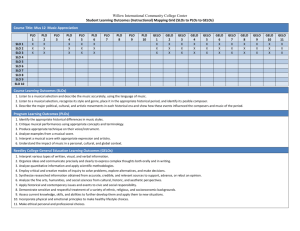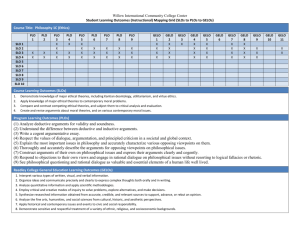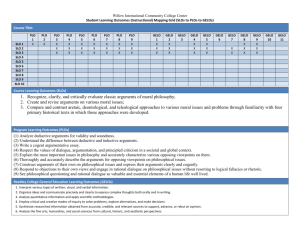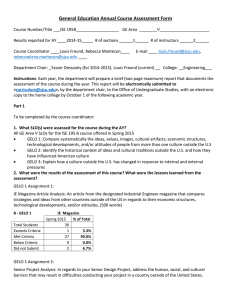SLO Mapping Grid Biology 31 (new window)
advertisement
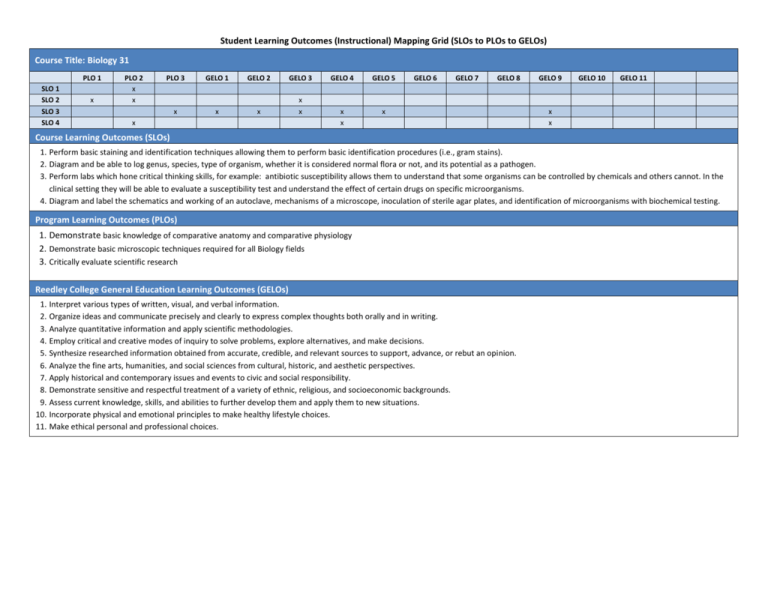
Student Learning Outcomes (Instructional) Mapping Grid (SLOs to PLOs to GELOs) Course Title: Biology 31 PLO 1 SLO 1 SLO 2 SLO 3 SLO 4 x PLO 2 x x PLO 3 GELO 1 GELO 2 GELO 3 x x x x x x GELO 4 GELO 5 x x x GELO 6 GELO 7 GELO 8 GELO 9 GELO 10 GELO 11 x x Course Learning Outcomes (SLOs) 1. Perform basic staining and identification techniques allowing them to perform basic identification procedures (i.e., gram stains). 2. Diagram and be able to log genus, species, type of organism, whether it is considered normal flora or not, and its potential as a pathogen. 3. Perform labs which hone critical thinking skills, for example: antibiotic susceptibility allows them to understand that some organisms can be controlled by chemicals and others cannot. In the clinical setting they will be able to evaluate a susceptibility test and understand the effect of certain drugs on specific microorganisms. 4. Diagram and label the schematics and working of an autoclave, mechanisms of a microscope, inoculation of sterile agar plates, and identification of microorganisms with biochemical testing. Program Learning Outcomes (PLOs) 1. Demonstrate basic knowledge of comparative anatomy and comparative physiology 2. Demonstrate basic microscopic techniques required for all Biology fields 3. Critically evaluate scientific research Reedley College General Education Learning Outcomes (GELOs) 1. Interpret various types of written, visual, and verbal information. 2. Organize ideas and communicate precisely and clearly to express complex thoughts both orally and in writing. 3. Analyze quantitative information and apply scientific methodologies. 4. Employ critical and creative modes of inquiry to solve problems, explore alternatives, and make decisions. 5. Synthesize researched information obtained from accurate, credible, and relevant sources to support, advance, or rebut an opinion. 6. Analyze the fine arts, humanities, and social sciences from cultural, historic, and aesthetic perspectives. 7. Apply historical and contemporary issues and events to civic and social responsibility. 8. Demonstrate sensitive and respectful treatment of a variety of ethnic, religious, and socioeconomic backgrounds. 9. Assess current knowledge, skills, and abilities to further develop them and apply them to new situations. 10. Incorporate physical and emotional principles to make healthy lifestyle choices. 11. Make ethical personal and professional choices.
